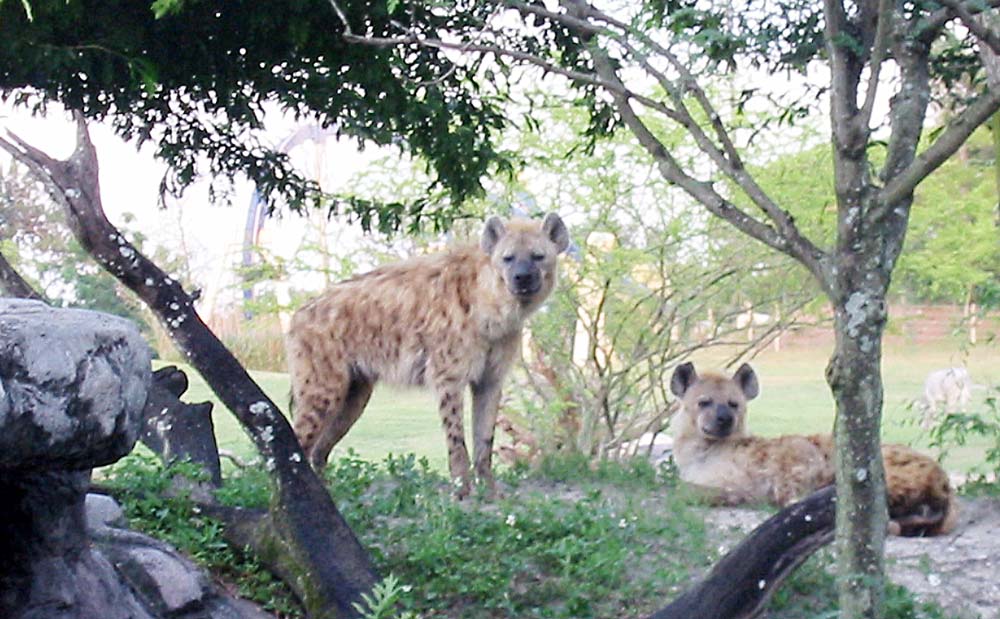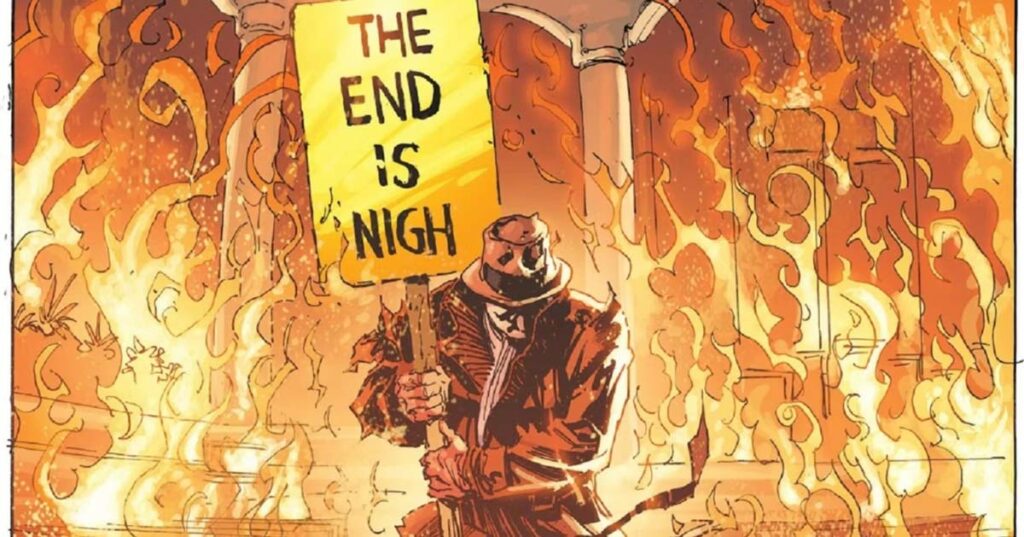If you’re at all familiar with the world of the relationship self-help insustry, you’ve probably heard of the Gottman Institute, an “evidence-based research institute” that explores romantic relationships.
The Gottmans claim to be able to predict with a high (greater than 93%) degree of accuracy which married couples they see are headed for divorce. Leaving aside the issue of selection bias—healthy couples are less likely to seek relationship counseling—they claim to have identified four factors they call the Four Horsemen of the Relationship Apocalypse: Criticism, Contempt, Defensiveness, and Stonewalling. Once those become part of a relationship dynamic, stick a fork in it, it’s over.
Now, I tend to be deeply skeptical of quantifying relationship dynamics. Which is not to say there aren’t certain dynamics that can be recognized, it’s just that there tend to be a lot more of them than a lot of relationship gurus think, with quite a bit more nuance and overlap than folks who like pigeonholing are perhaps comfortable with.
For example, I do think different people express love in different ways, and it’s important to recognize the ways you express and receive love. I don’t think there are five love languages, though. I think there are a lot more than five.
But I digress.

The relationship landscape once the apocalypse comes. (Image: Catalin Pop)
And so it is with the Four Horsement. I don’t disagree for a second that once these dynamics start to dominate a relationship, it’s done.
I just think this particular apocalypse is heralded by more of a posse. There are more than four dynamics that herald the end of things.
I got to thinking about this when I fell down a rabbit hole reading about zygote development a couple days back (as one does). Not because of evolutionary psychology or any of that silliness, but because vertebrate embryology follows a predictable pattern. Ontogeny recapitulates phylogeny and all that jazz.
That got me to thinking about hyenas, which got me to thinking about an ex from long ago, which got me to thinking about warning signs I should’ve seen but didn’t.
So a bit of history. Back in 2006, when I was still living in Tampa and dating a woman named Shelly, we went to Busch Gardens together and watched the hyenas, which inspired a blog post about the nature of beauty.
Brief recap: A lot of people who look at the hyena exhibit were like “man, those are sume ugly dogs.” But of course, hyenas aren’t dogs; they’re not even close to dogs. They’re more related to cats and mongooses than they are to dogs. If you judge the hyena by the beauty standards of a dog, of course they’ll seem ugly—they’re quite poor approximations of a dog. If you look at them for what they are, they’re quite lovely in their way.

A photo from that day, back when my digital camera was really rather shitty
They look a bit like dogs, especially in the shape of their faces (which are much more canine than feline), because of convergent morphology—a process by which creatures living in the same environment with the same general lifestyle will tend to converge on an optimized shape for that environment and lifestyle. Orcas and sharks diverged a very long time ago, but converged on the same basic shape. Ditto for creodonts and carnivores—there were bear-like and cat-like creodonts, even though they weren’t all that closely related to modern cats and bears. (And don’t even get me started on crabs—ultimately everything wants to be a crab).
Our relationship was still rather new at that point—we’d only been together five years—and I clearly remember saying that hyenas were a great example of convergent morphology, and Shelly saying something along the lines of “one of the things that I love about you is that you’ll use expressions like ‘convergent morphology’ in eveyday conversation, not because you’re trying to show off but just because that’s you.”
I remember it so clearly in part because something particularly jarring that happened a few years later, after she’d starting a monogamous fellow who was okay with her shagging other women but didn’t like her playing with other penis-bearers, so she told me that we would no longer be lovers “but,” she assured me, “we will always be partners and always be family.”
We’d gotten somehow on the subject of evolutionary biology—I don’t remember how—when I described something as an example of convergent morphology and she rolled her eyes and said (paraphrasing) “Why do you have to use expressions like that instead of just saying they evolved to look the same?”
It’s quite jolting when someone you love tells you that a thing they once really liked about you is a thing they find annoying. It tends to stick in the memory.
I think this is a fifth horseman. (How many horsemen are there? I don’t know; I’m not even sure it’s a useful exercise to try to list them all.) This isn’t the only time I’ve seen it, of course, but it’s the first time I ever experienced it.
In the start of a relationship, some people have a tendency to find everything about their new partner amazing and beautiful.
This isn’t universal, of course. Right now, Eunice and Joreth and I are reading Dorothy Tennov’s book Love and Limerence: The Experience of Being In Love with an eye toward doing an episode of our podcast, The Skeptical Pervert, about limerence. None of the three of us is particularly limerent, but the book definitely describes this phenomenon—obsessing over every detail of the object one feels limerence for, finding all of them uniquely enchanting. The book describes one person’s experience of limerence this way:
“Once I fall, really fall, everything about her becomes wonderful, even things that would otherwise mean nothing at all are suddenly capable of evoking curiously positive reactions. I love her clothes, her walk, her handwriting (its illegibility would seem charming, or if it were clear and readable, that would be equally admirable), her car, her cat, her mother. Anything that she liked, I liked; anything that belonged to her acquired a certain magic.”
That magic can, it seems, fade when the limerence fades.
Now me personally, I think limerence sounds absolutely awful, and I’m grateful I don’t experience it. (Which is not to say that I don’t have problems of my own, of course. I tend to accept red flags when I shouldn’t, thinking of them as quirks that help make this person who they are, something I’ve spent quite a lot of time working on with my therapist. But that’s a whole ’nother essay altogether.)
I don’t want to go into whether or not limerence is itself a long-range advanced scout for the Horse Posse of the Apocalypse (I think it might presage problems down the road, though I could be wrong), but I definitely think that when the day comes a thing you once found delightful about a lover now exasperates you, the end is, as Rorshach might say, well and truly nigh.

There’s a thing I’ve seen where creeping disenchantment begins to overcome a relationship, perhaps when someone is annoyed or frustrated, and all the things that were once sparkly and delightful become irritating. Many people project their present state into the past, losing touch with the way they once felt and assuming that their emotional state now is the way Things Always Were.
I can’t imagine what it must be like for such a person to square in their head that present emotion with past action. Regardless of where it comes from, though, that is definitely one of the Stampeding Herd of the Apocalypse, and it might, I think, be productive to be aware of it when it happens.
I don’t necessarily have a solution, mind. But if you see this happening in oyur relationship, take note: the wheels are coming off, and if you don’t do something to change your trajectory, you’re likely headed for a crash.

Although I did not have a label for the experience I certainly get the “limerance” part, I’ve experienced it, and the fading of it.
But I think the knowledge that I was on the chemical cocktail of infatuation gives some perspective.
I also figured out that my irritation can be petty, and those petty irritations are often a proxy for something else that is bothering me, about my partner or other stressors in my life, like being unhappy in my job or my siblings behaving like fools.
Taking that shit out on my partner is unfair. And knowing that my partner sometimes takes her external issues out on me, I end up resenting it less, at least if it is transient.
I figured much of that out when I broke up with my third girlfriend, 36 years ago. I got married two years later, and have remained married. There was limerance, for both of us, and things I thought were cute are now irritating, and vice versa.
To me, it’s similar to when my Rottweiler suddenly barks in her megaphone voice, because something in the sound of UPS delivery trucks on our street irritates the feckin’ hell out of her. It’s alarming, and I wish she wouldn’t, but in a larger sense that’s just how she rolls, she’s protecting her pack.
I don’t stop loving my dog because she’s got this quirk almost every day.
I think the “proof” of this being a harbinger of relationship disaster would be if the behaviors that irritate my wife were growing, or progressive; but that isn’t the case. She isn’t looking for new things about me to be irritated about. Nothing new has been added to the list in decades.